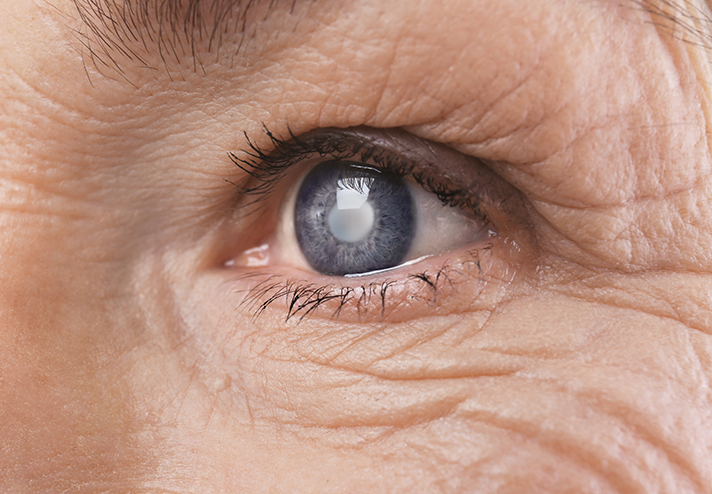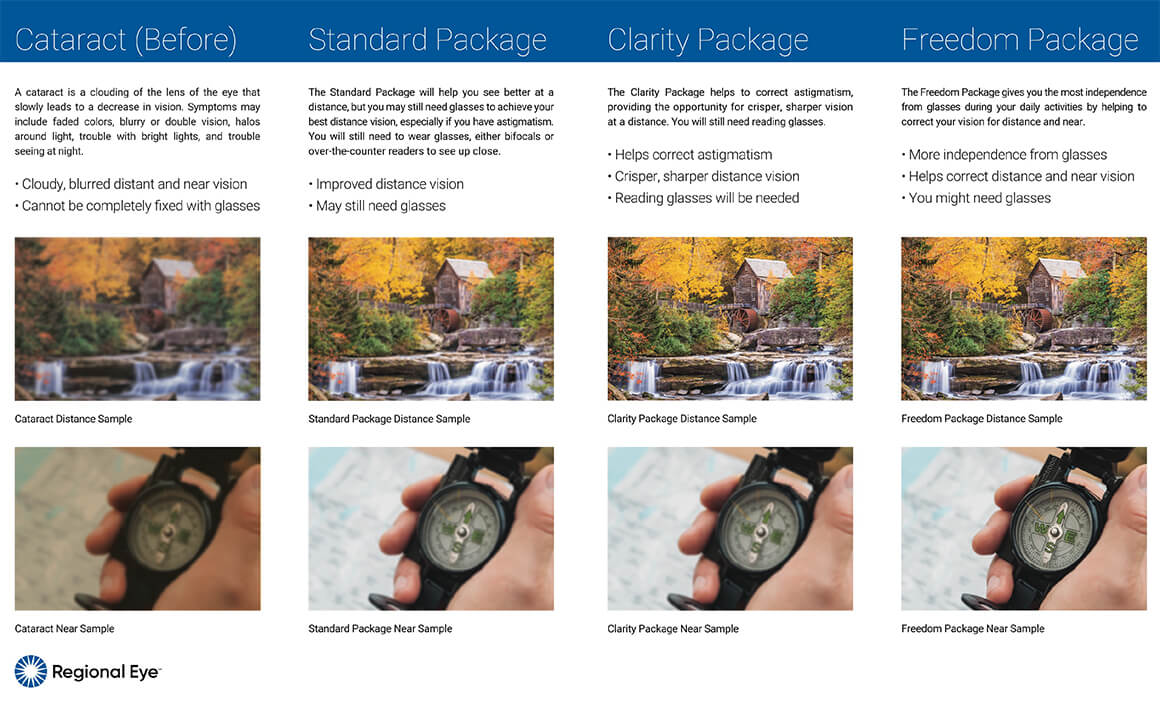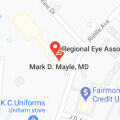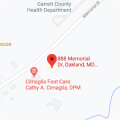
Cataract Clinic
Eye Clinic in Morgantown, WV.
A cataract is a “clouding” of the eye’s natural lens. Which results in blurred or defocused vision. Generally speaking, cataracts are often described as looking through wax paper or cloudy cellophane. More than 20 million adults in the U.S. have developed cataracts. Thus, making it the number one cause of poor vision in the United States. In most cases, cataract surgery is required to improve an individual’s vision. The natural lens is replaced with a man-made lens. Which is often referred to as an IOL or intra-ocular lens. This surgery is highly successful. And, is the most commonly performed surgery in the United States today. We are your premier cataract clinic in Morgantown, West Virginia.
Signs and Symptoms of a Cataract
From our Cataract Clinic in Morgantown
In reality, the only way to properly diagnose a surgical cataract is to have an ophthalmologist perform a comprehensive, dilated eye exam. Most age-related cataracts develop gradually. At the same time, just having a cataract does not necessarily mean that surgery is required. Surgery can be performed if the cataract is bad enough. Of course, if it is assessed by your surgeon. But also, if you have symptoms. As a result, you may not immediately notice changes in your vision when cataracts first develop.






In Time, You May Have Symptoms Such As:
- Clouded, blurry, or dim vision
- Increased difficulty seeing at night or in low light
- Sensitivity to light and glare, seeing halos around lights
- The colors seem faded or yellowed
- The need for brighter light for reading and other activities
- Frequent changes in eyeglass or contact lens prescription
- Double vision within one eye
Causes of Cataracts
Cataracts occur as part of the natural aging process. So everyone is at risk, eventually. By the age of 75, about 70% of people will have cataracts. The eye’s lens not only slowly becomes less flexible. But it will also become less transparent and thicker. Areas of the lens gradually become cloudy. Cataracts usually develop in both eyes at the same time.
These Factors Increase the Risk of Developing a Cataract
- Older age
- Diabetes
- Family history
- Smoking
- Previous eye injury or inflammation
- Prolonged steroid use (especially combined use of oral and inhaled steroids)
- Extensive exposure to sunlight
Treatment at our Cataract Clinic
Although cataracts have no scientifically proven prevention. It is sometimes said that wearing ultraviolet protective sunglasses may slow the development of cataracts. Regular intake of antioxidants such as vitamins A, C, and E is theoretically helpful. Taking them as a supplement has been shown to have no benefit. The less well-known antioxidant N-acetylcarnosine, has been shown in randomized controlled clinical trials. It is used to treat cataracts. Which can be expected to prevent their formation by similar mechanisms. N-acetylcarnosine is a proposed treatment for other ocular disorders. These disorders are not only instigated or exacerbated by oxidative stress. But also, by glaucoma, retinal degeneration, corneal disorders and ocular inflammation.
Cataract Surgery With a Monofocal Lens
Cataract Surgery With a Multifocal Lens
Cataract Surgery With a Toric Lens
Your New Options
Prior to your cataract surgery, you may have an important decision to make. Especially with the new advancements in technology. There are several specialty packages for you to choose from. Which can help reduce your dependency on glasses after the surgery.
The traditional mono-focal lens will provide you with one range of vision. Most patients will choose correction for distance vision. Whereas, you will still need to wear glasses for reading and up-close activities. Specialty lenses and refractive packages are available to our patients. Especially for our patients who have specific needs or desires. Astigmatism can be corrected by these packages not only to obtain a desired focal point. But also to provide both near and distance focus. The specialty packages come with an additional cost that is not covered by Medicare or other health insurance.

If you would like to learn more about Specialty Packages, click here. A member of our knowledgeable staff and your Regional Eye Associates cataract surgeon will help you to determine the best lens for you at your upcoming cataract evaluation.
JCAHO Accredited
What is the “Joint Commission on Accreditation of Healthcare Organizations?”







